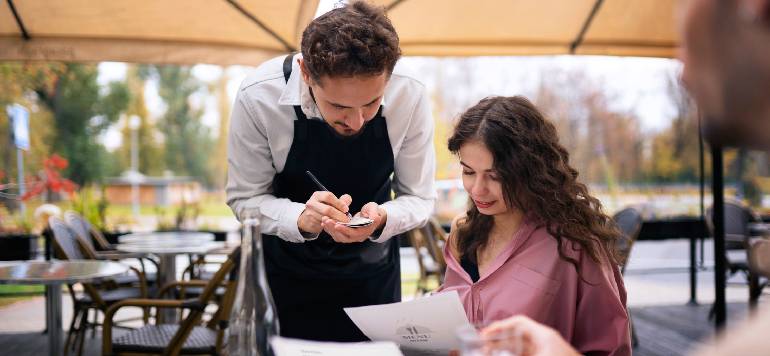

If you’ve ever dreamed of perfecting your cooking skills in the heart of Europe, surrounded by Michelin-starred chefs and organic markets, France is where your culinary journey begins. But this isn’t just about gourmet food — it’s about sustainability, too.
With eco-friendly culinary internships in France, aspiring chefs can now learn how to blend traditional French gastronomy with modern sustainable cooking practices. From the rolling vineyards of Bordeaux to the cozy kitchens of Provence, these programs teach you how to create dishes that satisfy both the palate and the planet.
Whether you’re a culinary student, a food lover, or an aspiring professional chef, Culinary Internships France offer the perfect balance between skill, sustainability, and cultural immersion.
France isn’t just the birthplace of haute cuisine — it’s also one of the first countries to legally ban supermarket food waste. Sustainability is woven into the French way of life, making it the ideal destination for eco-conscious culinary training.
Here’s why France stands out:
Learn from world-renowned chefs who emphasize local sourcing and zero-waste cooking.
Train in authentic kitchens — from Parisian restaurants to countryside farmhouses.
Experience regional cuisines, each with its own sustainable traditions and techniques.
Build global connections in the international food and hospitality community.
France’s culinary culture blends tradition with innovation, and an internship here lets you experience the full journey — from farm to fork.
Eco-friendly culinary internships focus on teaching techniques that promote environmental balance and responsible cooking. In France, this includes:
Farm-to-Table Practices – working directly with local farmers to source seasonal ingredients.
Waste Reduction Techniques – learning to use every part of produce and minimize leftovers.
Sustainable Menu Design – creating menus that prioritize plant-based and low-impact dishes.
Energy-Efficient Kitchens – using modern equipment that reduces carbon footprint.
Composting & Recycling – following green practices from prep to plating.
By combining culinary skill with eco-awareness, interns gain the tools to lead the next generation of sustainable kitchens.
Every internship experience is unique, but most Culinary Internships in France share a few key ingredients:
You’ll work in real French kitchens — hotels, restaurants, or catering establishments — under the mentorship of expert chefs.
Learn to speak the language of food (and a bit of French, too). You’ll explore markets, festivals, and local farms, truly understanding French gastronomy.
You’ll experience how French chefs practice sustainability — from sourcing organic produce to crafting eco-conscious menus.
Connect with international students, chefs, and hospitality professionals who share your passion for sustainable cuisine.
An internship in France challenges you to think globally, act locally, and cook responsibly.
If you’re ready to turn your culinary dreams into reality, here’s how to get started:
Research Your Program
Find a trusted platform like Destiny Calling’s France Internship Program — a verified pathway that connects aspiring chefs with professional kitchens across France.
Prepare Your Application
Highlight your passion for food, sustainability, and learning. Even if you have no prior experience, enthusiasm and curiosity go a long way.
Get Support for Visas & Accommodation
Many programs offer visa guidance, housing, and cultural orientation to make your transition smooth.
Start Your Culinary Adventure
Once accepted, pack your knives and your eco-conscious mindset — because France is waiting to teach you the art of responsible cuisine.
Master the art of fine dining while working with Michelin-starred chefs who champion sustainable gastronomy.
Learn slow cooking with locally grown herbs and farm-fresh produce in the French countryside.
Known as the “food capital of France,” Lyon offers a mix of innovation, culture, and tradition in every dish.
Explore vineyard-based restaurants where organic wines and sustainable pairings are the highlight.
You can explore related programs like:
Mauritius Internships – for those who want to blend hospitality and tropical culinary learning.
Destiny Calling Home Page – to discover other international internship opportunities that promote sustainable career growth.
Gain real-world kitchen experience in an internationally respected food culture.
Develop eco-conscious cooking habits that align with modern industry standards.
Enhance your career profile with a global internship experience.
Build confidence and independence while living in one of the most culturally rich countries in the world.
Contribute to a sustainable future in gastronomy and hospitality.
Q1: What is a culinary internship in France?
A culinary internship in France is a hands-on program that lets students or aspiring chefs train under professionals while learning authentic French cooking techniques.
Q2: Are eco-friendly internships only for experienced chefs?
Not at all! Many programs welcome beginners with a genuine interest in sustainability and culinary arts.
Q3: Do these internships provide stipends or benefits?
Some offer stipends, accommodation, or meals — but the biggest reward is professional training and global exposure.
Q4: How long do culinary internships in France last?
They typically range from 3 to 12 months, depending on the type of placement and your availability.
Q5: What makes a French internship eco-friendly?
Programs that emphasize sustainable sourcing, zero-waste cooking, and environmental awareness qualify as eco-friendly culinary internships.
The world of gastronomy is changing — and chefs who care about sustainability are leading the movement. Eco-Friendly Culinary Internships in France let you master the art of French cuisine while making a difference for the planet.
Through programs like Destiny Calling’s France Internship Program, you can gain world-class training, cultural exposure, and an ethical foundation that lasts a lifetime.
If you’re ready to turn your passion into purpose, France’s kitchens are calling — and they’re greener than ever.